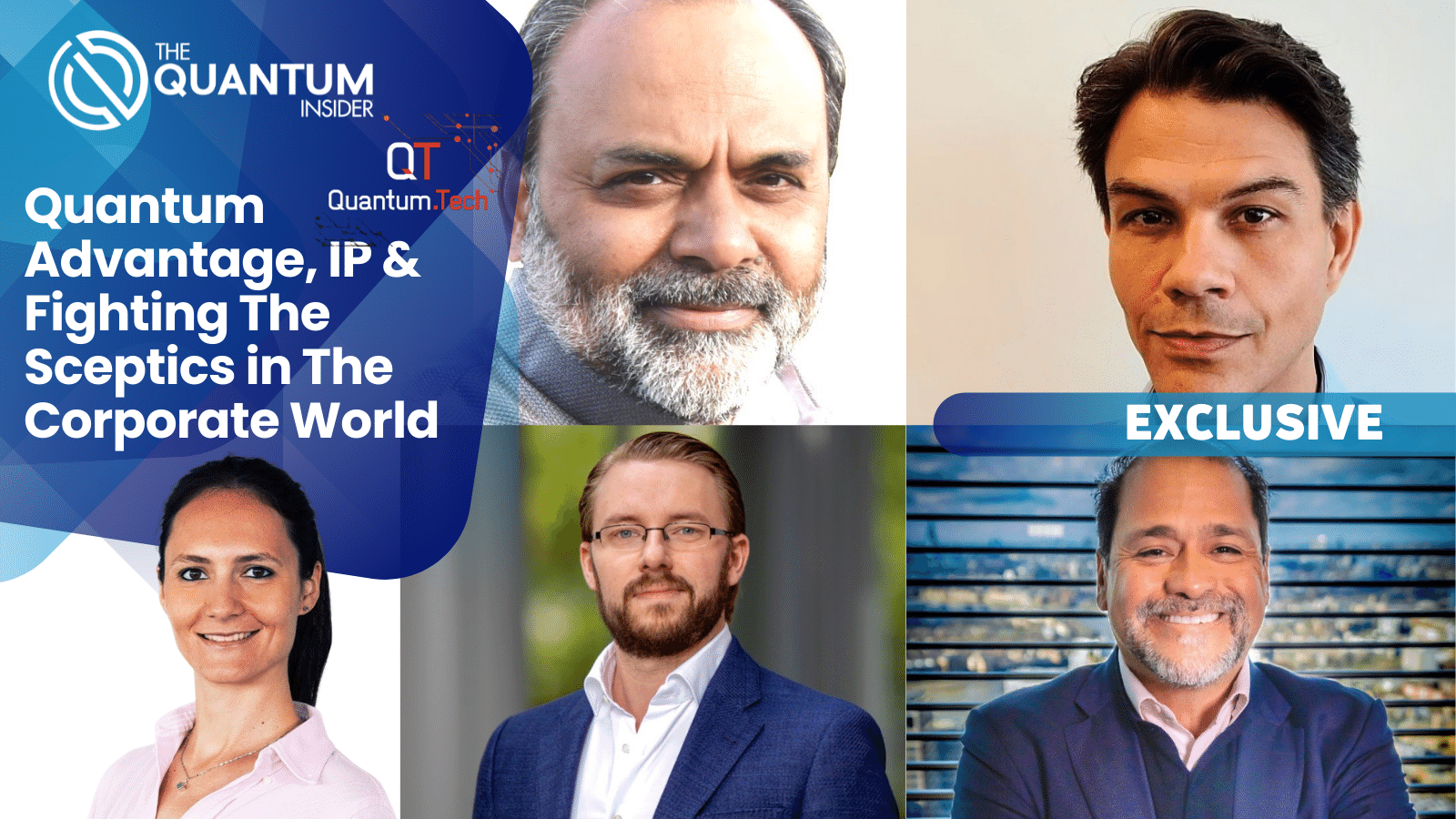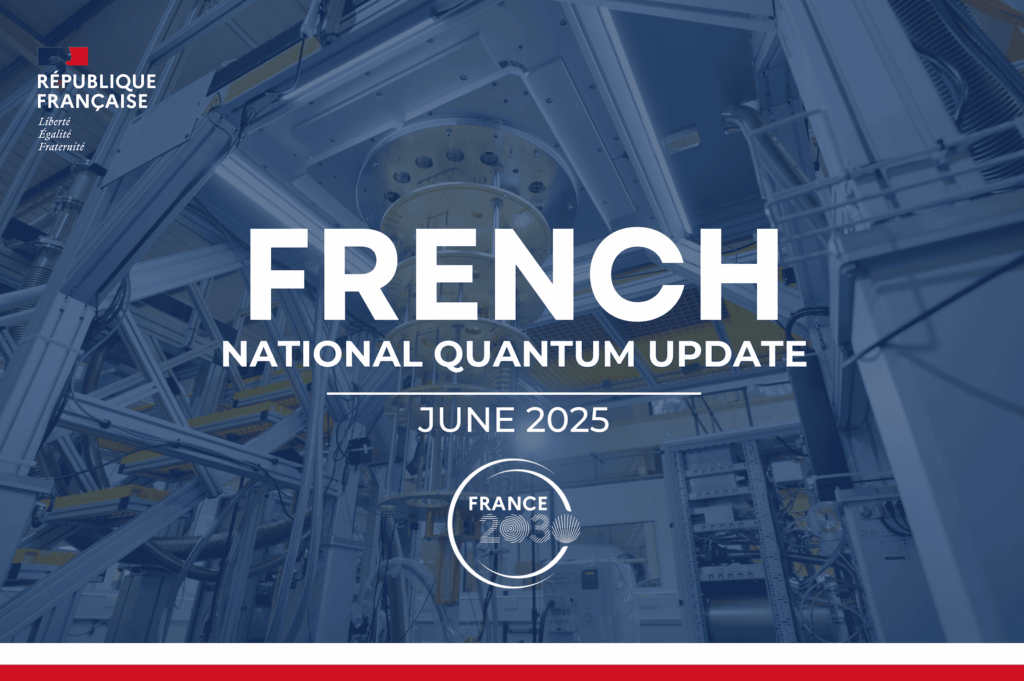Big Corporations
Although it’s a contentious issue as to whether most large corporations are getting ready for the transition to quantum technology, it was good to see a healthy representation of them at the Quantum.Tech conference in London this September.
One panel discussion that piqued my interest when I had first seen the agenda for the event was Getting Quantum Ready: How some of the largest corporations in the world are starting to implement quantum technologies. Moderated by Simon Fried, Vice President of Business Development at Israeli quantum computing startup, Classiq, the impressive panel was made up of Christian Essling, Chief Data Officer, E.ON; Satyam Priyadarshy, Technology Fellow and Chief Data Scientist, Halliburton; Elena Strbac, Global Head of Data Science Innovation, Standard Chartered; and Steve Suarez, Global Head of Innovation, Global Functions, HSBC.
The topics covered in the fifty-minute-long panel ranged from how quantum is impacting their workflows to where the commercial breakthroughs in quantum computing, sensing or cryptography are taking place in corporations.
Quantum Advantage
With the agenda set, Fried — who has worked in deep-tech startups for over a decade — got the panel discussion off and running by underscoring the adoption of quantum, what that journey looks like and unveiling some of the things commercial enterprises are up to with this disruptive technology, before asking the panel members what they defined as “quantum advantage” in a broader sense when thinking of their respective companies.

“From an HSBC perspective,” Steve Suarez began, “it’s really about being quantum ready. This is one technology where you don’t want to get caught on the back foot.”
It’s clear Suarez’s employer wants to get in early, understand the technology and, once that’s done, measure opportunities and threats, especially in cybersecurity.
A second area that Suarez pointed out quantum could be transformational — even apologizing to the audience that it might sound “boring” — was solving optimization problems for things like ATM replenishment.
Another panellist working in the banking sector, Elena Strbac, agreed with Suarez while calling to attention that for Standard Chartered it’s about the learning and identification of the use cases and algorithms that may lead to a quantum advantage once the technology is ready to scale — the bank sees anything on machine learning (ML), and comparing classical ML and quantum ML to solve problems, as a key area of its focus.
“We see quantum as a business matter at Standard Chartered, we don’t see it as IT or research,” said Strbac, whose focus is on developing ML solutions for financial markets and transaction banking use cases within the London-based bank. “The quantum specialist team that we’ve recruited sits within the business. I think that’s a really important shift because it’s moved from a side-of-the-desk hobby to having its own dedicated space and workstream.”
Fried asked E.ON’s Christian Essling — an economist by training who admitted he had only recently got into quantum — the German electric utility company’s quantum take on quantum advantage:
“There are use cases right now when it comes to simulations that we can do with classical computers but can be done much more quickly with quantum, I think that’s the game-changer right now,” said Essling.
Halliburton, responsible for most of the world’s hydraulic fracturing, had its representative on the mike, Dr. Satyam Priyadarshy, Technology Fellow and Chief Data Scientist at the company who has been involved in quantum since he was 21. He said that a win for his company with quantum is with R&D, as the risk and cost factors are very high.
“There is a method to the madness in terms of how we choose the problems and how we address them, and what is the area we need to visit and build solutions for,” the academic said, recognized as the first Chief Data Scientist of the oil and gas industry.
A Matter of IP
The topic — always a sensitive one — of intellectual property (IP) was next up.
“We’re taking it very seriously looking for an opportunity with patents and papers,” said Suarez from HSBC’s standpoint, also mentioning that the bank’s ongoing research was a good recruitment tool in bringing people into the organization.
Strbac, meanwhile, said IP was an intangible asset on her bank’s balance sheet, while Essling commented his team at E.ON is like a seed-funded startup, where the company is investing in the research to find out if it’s intellectually valuable.
“We certainly do a lot of IP-related work,” added Priyadarshy, saying it was always at the top of the agenda.
You’re Not a Startup
Fried pointed out that all four panellists didn’t work in startups, unlike himself, and lacked the luxury of time to get results for their research in quantum.
Priyadarshy, acutely aware we are at the early stages of the technology, mentioned “proof of value projects”, where you show your bosses the value and innovation in the R&D and the rest will follow.
“Quantum is interesting, inherently, and people are curious in it but expect — sometimes too early — business value,” said Essling.
“I think for us it’s been important to articulate the scale of the potential disruption that will come,” said Strbac, “because the scale of the potential disruption is not something we don’t want to be ready for.”
Suarez’s stance was similar, underlining the timeline and the vision, and how dealing with skeptics was a fact of life they all had to deal with. HSBC’s representative mentioned that buy-ins were important, those “little wins” that can eventually turn those skeptics into champions of the technology.
If you found this article to be informative, you can explore more current quantum news here, exclusives, interviews, and podcasts.

















